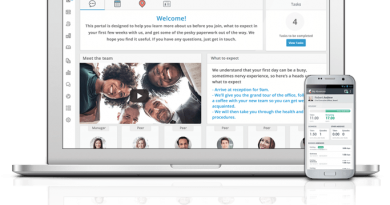WordPress vs Wix: 7 differences
If you’re thinking about getting with the times and building a website, then two options are bound to come to your mind – WordPress and Wix.
While WordPress is the veteran in the field, Wix has come up to be no rookie either. With over-the-top marketing, extendable features and continuous improvements, it has now become a solid choice for many businesses out there. On the other hand, WordPress is still the heavyweight, being the powerhouse for over 39% of all websites on the internet.
What makes them categorically different is the level of customization. Since WordPress offers a plethora of tweaks, you might have come across a WordPress web design service more often than not. In fact, thanks to remarketing, you are bound to see more ads for a developer once you’re done reading this article. Wix brings in some level of standardization that makes the setup easy but also binds in other aspects.
To save you from the confusion, we have compiled seven differences based on categories that shall help you make an informed decision.
Pricing
Technically, both WordPress and Wix are free, but they really aren’t.
Wix
Wix offers a free website builder, to begin with. However, it is not recommended in any case. Firstly, the provider shall pump your site with ads and next; you can’t get a custom domain name. All free Wix sites have to use the username.wix.com/sitename format.
Once you lean towards the premium offerings, there are eight different plans to choose from, segregated between basic and e-commerce categories. A flat billing structure is applied to start from $14 a month. This includes the hosting, building and some plugins. As you go higher, bigger storage space, built-in analytics and advanced functionalities open up. There are always premium plugins to further invest in.
WordPress
WordPress is a CMS software that is free to use. But, CMS is not all that you require for a website. You’ll need to invest in a hosting service and domain name to get started. While a hosting service can cost you anywhere from $4 to $40, the domain name is typically priced at $10 per year.
Considering the level of customization – premium themes, paid plugins and a WordPress developer are some of the upgrades you could go for to personalize your website.
Ease of Use
The usability of each builder depends on your level of experience.
Wix
Wix is for the beginner and mid-level users who are not looking to alter every aspect of their website obsessively. The straightforward drag-and-drop feature lets you add images, presentations, content and pretty much any element that you can think of. There are templates available as per your business model that set up an aesthetic page in no time. No coding is required with Wix whatsoever.
WordPress
While WordPress is not so far away from a What-You-See-Is-What-You-Get interface, it does spawn a small learning curve. A visual editor helps you design the website on the backend. The difference here is that to understand how a visitor shall see the pages; you need to go to a Preview every time. The navigation menus, settings and overall interface call for some familiarity as well. Nevertheless, being an open-source platform, it provides complete flexibility for all elements.
Designs and Layout
Almost all website builders in today’s time offer some templates to speed up the process.
Wix
Wix offers over 800 “designer-made” templates in its extensive catalogue. The platform has also put in an AI module named Wix ADI that suggests the best options in line with your answers. However, the design can only be altered in terms of colour, fonts, and placement, without any major personalization. Given how it is made keeping beginners in mind, the template only applies for a single page, i.e. you shall either have to use the same layout for other pages on your website or make troublesome changes with each addition. Furthermore, once selected, you cannot change the template in any condition.
WordPress
In comparison to Wix, WordPress has over 30,000 different themes on its own site and through various theme repositories. The open-source platform comes into play once again, allowing you to tweak even the most intricate parts of your web page. Additionally, with a theme structure, WordPress conceptualizes not only a page but, the entire website. Whether your web design clean or vibrant, it lends total control over the layout.
Security and Data
How easily can you take your site from one platform to another, and how much of it is protected in the long run?
Wix
Wix doesn’t offer any migration whatsoever. A website built on the platform cannot be exported anywhere else. That being said, the security levels are pretty much on point. Standard SSL certificates and coding ensures minimal loopholes. Plus, a support team is always available to tackle any unseen roadblocks.
WordPress
WordPress employs a one-step-exporter that gives you all your data in an XML format for easy movement. Backups are a pro with downloadable media files and databases. The only drawback is that security has to be managed by you. With third-party plugins and themes, there is a heavy chance of malicious code entering your web model. SSL certificates also need to be installed separately.
SEO
Both Wix and WordPress ensure Google visibility and ranking. However, there is a specific difference in the application.
Wix
Wix deploys the Wix SEO Wiz for on-page SEO optimization. All your meta descriptions, alt text, headings and custom URLs are covered under it. For premium users, SiteBooster is available, which enlists your pages under Google and local directories directly. The only catch with Wix is the lack of technical SEO factors. Additionally, the low loading speeds due to its Javascript base hurts your rankings as well.
WordPress
The Yoast SEO plugin is the most powerful and popular add-on for SEO management. While internal linking, meta description and keyword optimization are common features, it also aids in acing the technical SEO aspects. WordPress also allows for HTML and CSS coding, giving your site faster loading times. Overall, a granular level of control can be seen with WordPress.
E-Commerce
Selling online is quite a necessity with the digital transformation that has taken over.
Wix
Again, great for beginners, Wix offers an all-integrated platform with its premium e-commerce plans. Features like currency conversion, delivery systems, automated taxation, discounting, and subscriptions come pre-installed. It is important to note that the options are limited and would only be apt for a small business.
WordPress
WordPress does not offer any e-commerce capabilities on its own. But, install a plugin like WooCommerce, and there is nothing that your website cannot do. You can add shopping and shipping extensions as you please to upgrade the website further. The payment options are endless too. It not all roses and daisies though. There are additional costs that shall come with the gateways, themes, plugins and transactions.
Plugins and Apps
You don’t want to end up being basic. Both sites offer add-on tools to tweak the frontend as well as the backend.
Wix
Wix has over 250+ apps in its library. Wix itself offers some while others are sourced from third-party developers. The pro here is that the Wix team verifies all apps to have no chances for any incompatibility or mishap. Standard requirements like email marketing, contact forms, social media buttons, galleries, business invoicing and more are covered across the board.
WordPress
WordPress is indeed known for its plugins. With over 58000 add-ons and counting, it takes care of all your prerequisites. Both free and premium ones are available depending on the functionalities you wish to achieve. Furthermore, you can manipulate the platform with your own code to integrate custom features. Since the possibilities are endless, you’ll need to keep a close watch on the site integrity and inter-compatibility between the plugins.
Conclusion
Wix and WordPress, although peers in the website building arena have their own set of audiences and pros. While you can’t have everything in one place, the choice should finally depend on the size of your brand or business and the level of customization that you’re willing to undertake. Also, consider the time and money that you shall expend in creating your digital real estate.




